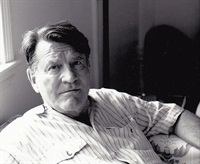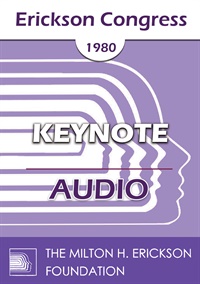IC80 Keynote 01 - Erickson's Contribution to Change in Psychotherapy - Jay Haley, MA
- Average Rating:
- Not yet rated
- Topic Areas:
- Keynotes | Psychotherapy | Ericksonian Hypnosis and Therapy Techniques | Ericksonian Psychotherapy | Hypnotherapy | Milton Erickson
- Categories:
- Erickson Congress 1980 | Erickson Congress | Pioneers in Couples and Family Therapy
- Faculty:
- Jay Haley, MA
- Duration:
- 1:01:07
- Format:
- Audio Only
- Original Program Date:
- Dec 05, 1980
- License:
- Never Expires.
Description
Description: Jay Haley reflects on his personal experiences with Milton Erickson, offering insight into Erickson’s distinctive use of metaphor, indirect communication, and strategic symptom management. He highlights Erickson’s focus on brief, practical therapy, family involvement, and adaptability to each client’s needs. The talk underscores Erickson’s lasting influence on modern psychotherapy and his pragmatic, often unconventional approach.
Credits
Handouts
| Timestamped Transcript (827.4 KB) | 18 Pages | Available after Purchase |
| Ericksonian Learning Snapshot (250.2 KB) | 2 Pages | Available after Purchase |
Faculty

Jay Haley, MA Related Seminars and Products
Jay Haley (M.A., 1953, Stanford University) was Director of Family Therapy Institute of Washington, D.C. He was one of the leading exponents of the strategic/interpersonal approach to family therapy. Haley served as Director of the Family Experiment Project at the Mental Research Institute and as Director of Family Therapy Research at the Philadelphia Child Guidance Clinic. He has authoered seven books, co-authored two and edited five. Additionally, he has more than 40 contributions to professional journals and books. Haley is the former editor of Family Process, and the first recipient of the Lifetime Achievement Award of The Milton H. Erickson Foundation.


